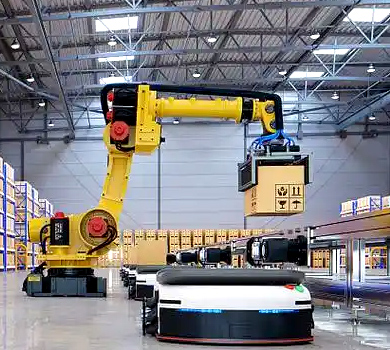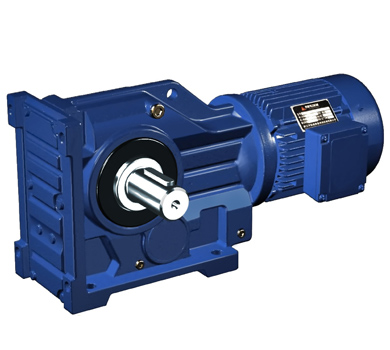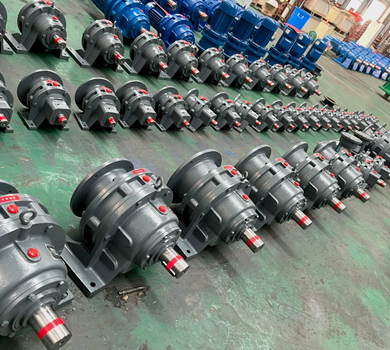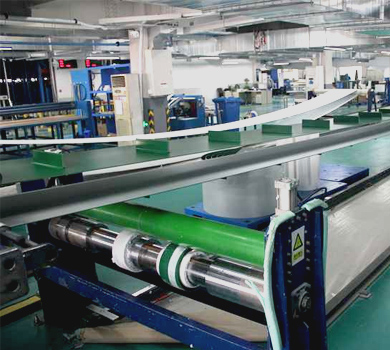The photovoltaic (PV) equipment industry, particularly the automated handling of photovoltaic glass, is a critical component of the global transition to renewable energy. As solar panel manufacturing becomes increasingly automated, the demand for robust, high-precision, and energy-efficient transmission systems has surged. In this case study, we explore the role of WAIMICA's gear reducers in overcoming the industry's major challenges and delivering superior performance in automated photovoltaic glass handling applications.
Industry Challenges and Pain Points:
Photovoltaic glass handling systems are used in the production lines of solar panels to transport large, heavy, and often fragile glass substrates. Typical components of these systems include conveyors, robotic arms, and positioning units, which rely heavily on transmission mechanisms to ensure smooth, accurate, and reliable operation. As the demand for larger, more efficient solar panels grows, so does the requirement for higher torque, more compact designs, and enhanced system stability.
Current industry pain points include:
- High mechanical stress: Due to the heavy loads involved, gear reducers must be able to handle significant torque and withstand frequent start-stop cycles.
- Accuracy and repeatability: Positioning systems need high precision to avoid damage to the glass during handling, particularly in high-speed environments.
- Energy efficiency and heat dissipation: Continuous operation of heavy machinery demands energy-efficient transmission with good thermal management.
- Compact and modular design: Modern PV equipment often requires space-efficient and easy-to-integrate transmission solutions to optimize the layout and reduce installation time.
- Harsh environmental conditions: These systems may operate in high-temperature, dusty, or even cleanroom environments, necessitating gear reducers with high environmental adaptability and protection ratings (IP65/IP67 and above).
- Long service life and low maintenance: The high operating frequency and the need for 24/7 availability make it essential to minimize maintenance and ensure extended operational life.
Key Role and Technical Requirements of Gear Reducers in This Industry:
In photovoltaic glass handling systems, gear reducers are crucial for translating motor motion into controlled, high-torque output. They directly impact the system’s performance in terms of speed, accuracy, and reliability. The primary technical requirements for gear reducers in this application are as follows:
- High torque density: The ability to deliver high torque in a compact form is essential for space-constrained automation layouts.
- High transmission accuracy and rigidity: Critical for minimizing positioning errors and ensuring consistent operation in high-speed production lines.
- Fast response and smooth acceleration/deceleration: Enables dynamic motion control and reduces mechanical stress on components.
- Customizable gear ratios: Tailoring the gear ratio to match specific production speeds and machine configurations is a common requirement.
- Environmental adaptability: Gear reducers must be sealed against dust and moisture, and capable of operating in a wide range of temperatures.
- Long service life and low maintenance: Bearings, lubrication systems, and gear materials must be optimized for durability in demanding applications.
WAIMICA's Gear Reducer Solution for PV Glass Handling Systems:
WAIMICA has developed a series of high-performance gear reducers specifically tailored for the needs of photovoltaic glass handling systems. These products are designed to meet the highest standards of precision, durability, and adaptability, while maintaining a competitive edge in cost and integration ease.
- Structural Design Highlights: Our gear reducers feature a modular and compact design that allows for flexible integration into existing and new automation setups. The unit is available in multiple mounting configurations (flange, shaft, foot) and is engineered to minimize overall system footprint.
- Performance Parameters: The WAIMICA series includes a wide torque range (500–10,000 Nm), high transmission efficiency (95% and above), and precision levels up to ISO 1328-1975 grade 5. The standard input flange is compatible with most major servo motor brands, ensuring seamless integration with automation controllers.
- Support for Special Operating Conditions: Our gear reducers are built to operate in environments up to 110°C with high-efficiency cooling systems. They are also suitable for use in cleanrooms and can be configured with IP67 or higher protection ratings for outdoor and high-dust applications.
| Parameter | WAIMICA PV Glass Handling Gear Reducer |
|---|---|
| Torque Range | 500–10,000 Nm |
| Transmission Efficiency | ≥95% |
| Backlash | ≤3 arcmin |
| Precision Grade | ISO 1328-1975 Grade 5 |
| Input Flange Type | IEC, NEMA, and Custom Flanges |
| Environmental Operating Range | -20°C to +110°C |
| Protection Rating | IP65, IP67, IP68 (customizable) |
| Mounting Options | Flange, Shaft, Foot Mount |
Conclusion and WAIMICA's Brand Value:
WAIMICA has demonstrated strong engineering capabilities and product customization flexibility in the photovoltaic glass handling industry. Our gear reducers not only match the performance standards of international counterparts but also offer a more cost-effective and reliable solution for manufacturers aiming to enhance productivity and reduce downtime.
With our advanced modular design, high-precision manufacturing, and extensive environmental and mechanical endurance testing, WAIMICA gear reducers are ideal for the increasingly complex and high-load automation systems in the PV industry. We are positioned as a trusted alternative to global premium brands, offering the same level of performance at a significantly lower cost.
As the industry continues to evolve towards higher automation and stricter performance requirements, WAIMICA remains committed to innovation and customer-centric engineering. Our ability to deliver customized, high-quality gear reducer solutions with fast turnaround times reinforces our value as a long-term partner for automation equipment manufacturers.







